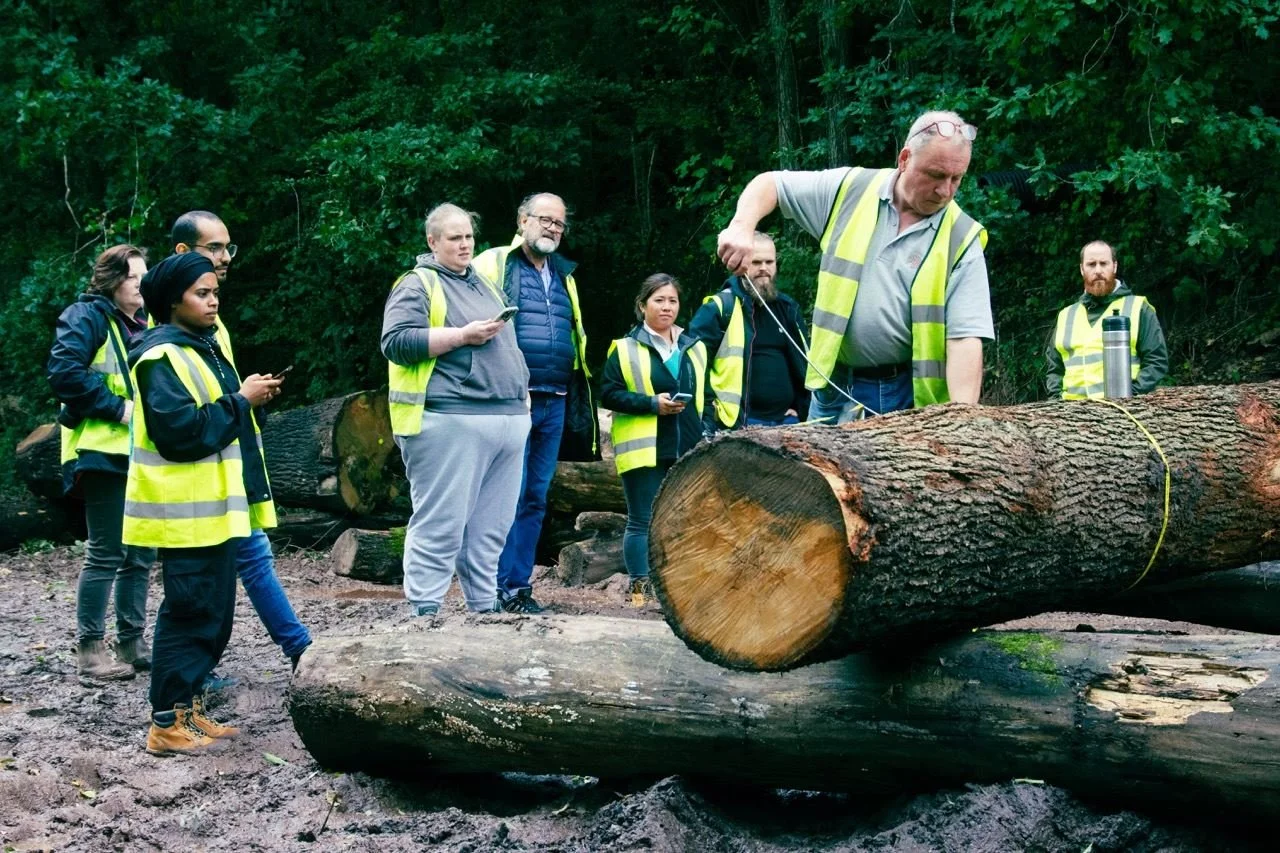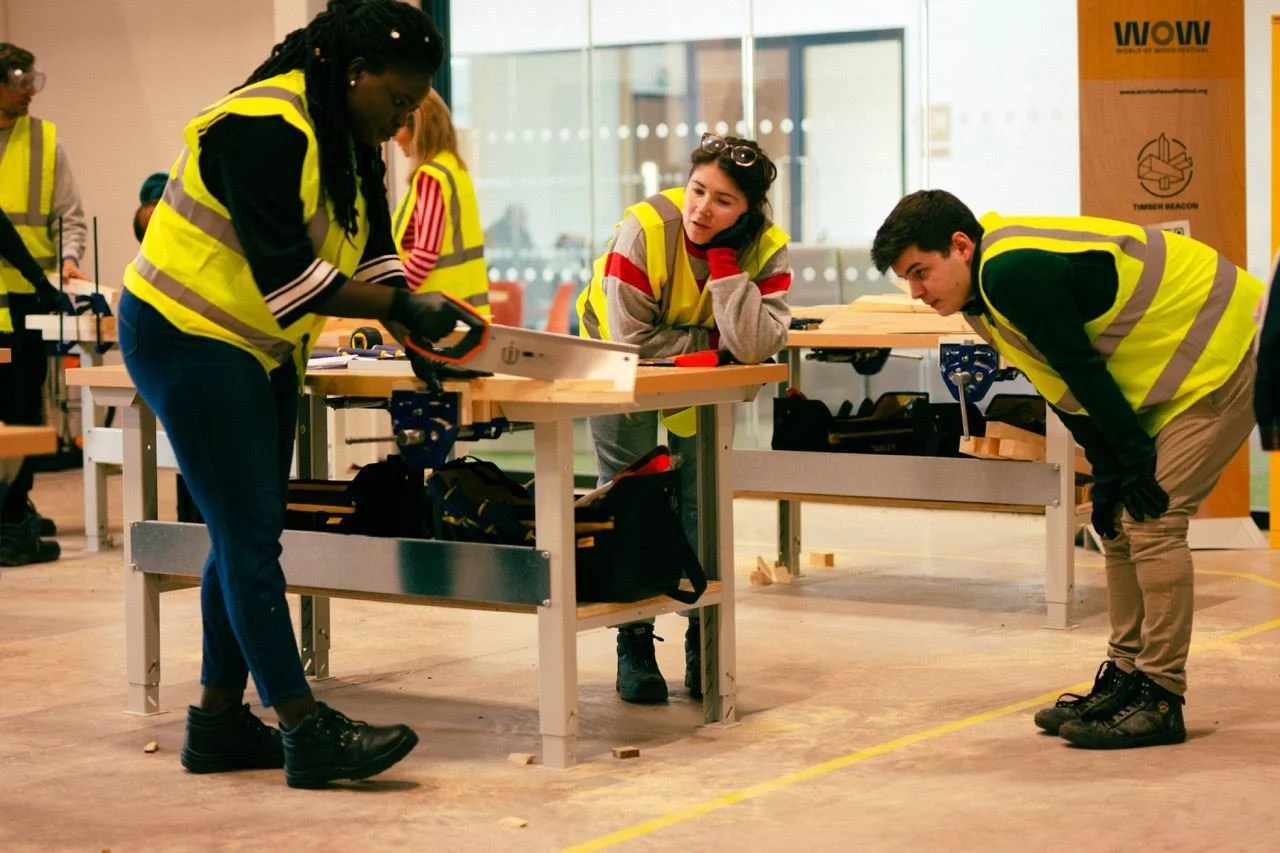A-Z Green Skills Award Winner: Timber TED
Demand for green skills is growing. We need to find innovative and scalable approaches to boost these skills to meet our zero carbon goals. Offsite construction using timber could help to build faster and more sustainably, but before this can happen at scale, we need more people with accredited skills in offsite timber construction.
To meet this demand, Timber TED (Timber Technology Engineering & Design) is a training course designed to provide construction students and professionals with a suite of in-person and online training to upskill in timber offsite construction techniques.
It was also the winner of our Green Skills Award this year at the A to Z Awards, recognising its leading approach to developing the skills needed to create a zero carbon built environment.
A response to industry and environmental needs
We spoke with Steve Bertasso, Assistant Professor at NMITE (New Model Institute for Technology and Engineering) about Timber TED and winning the Green Skills Award.
He told us that Timber TED emerged as a training course over two years ago as a response to the industry's need to embrace sustainable construction practices. He says it was "the result of a request and a review from industry partners surrounding a need to upskill and reskill the building industry in the use of timber."
Traditionally, the built environment sector in the UK is focused on brick and block building and engineered timber is used sparingly. Steve believes that we need to move away from this and consider timber as an essential building material - especially as we look for more sustainable construction approaches and need to reduce our carbon emissions.
Timber TED's mission
The training course’s mission is to increase the construction sector’s capacity to build with timber. The course focuses on training in skills related to understanding the life cycle of timber, its place in a circular economy, and the nature of timber as a material. Steve shares that the Timber TED team are particularly keen to engage with professionals who are ready to “convert to timber.”
He also stresses the hands-on experience that participants in the course will benefit from. He says, "Because we have the students work with hand tools and learn some of the older methods of working with timber, they begin to understand how grains and other features of timber can affect the way that we design buildings."
How do we scale Timber TED?
As the conversation unfolds, Steve shares that it’s his role as the course leader to “explore our successes with TED so far and then explore how we can scale this." The team behind the training programmes want to attract more learners and guide industry professionals through the curriculum to bring meaningful change in the sector.
One of the challenges, the team are facing when it comes to engaging with prospective students is the location of NMITE in Hereford. In the longer-term as the course scales, the team plans to overcome this challenge by partnering with other institutions to serve as delivery partners for the in-person, residential training that is required as part of the course.
Our conversation with Steve also covered Timber TED's move towards a hybrid learning model, incorporating online learning to make the course accessible to a wider audience.
Measuring impact
Timber TED measures impact in a number of ways. One significant metric is the diversity of each learning cohort. Steve notes, for example, that the latest group of students had an equal representation of genders.
He also highlights some success stories from the students on the Timber TED course that showcase the innovative thinking that can be nurtured by taking part. One example he gives is a project where a group of students designed a modularised, timber, geodesic dome that could be used as emergency housing.
What’s next?
Timber TED has ambitious plans for the future. The team hopes to reach at least as many students in the next year as it did in the previous two combined. The conversation hints at potential expansions to more locations and even other countries.
Looking more widely at the future of the built environment, Steve shares that he wants to see a shift towards thinking with a more global perspective and prioritising solutions that can have a greater impact on a global scale. He emphasises the need for higher education institutions to focus on developing solutions that can be deployed in developing countries and contribute to the global climate agenda.
The Green Skills Award
We finished our conversation with Steve by discussing Timber TED’s Green Skills Award win. The judges felt that Timber TED’s focus on tangible positive impact and its residential, inclusive and hands-on approach to training set it apart from other applicants.
He shares that winning awards like this validates the work the Timber TED team has been doing and showcases that industry is acknowledging the value of the timber and offsite in professional development.


